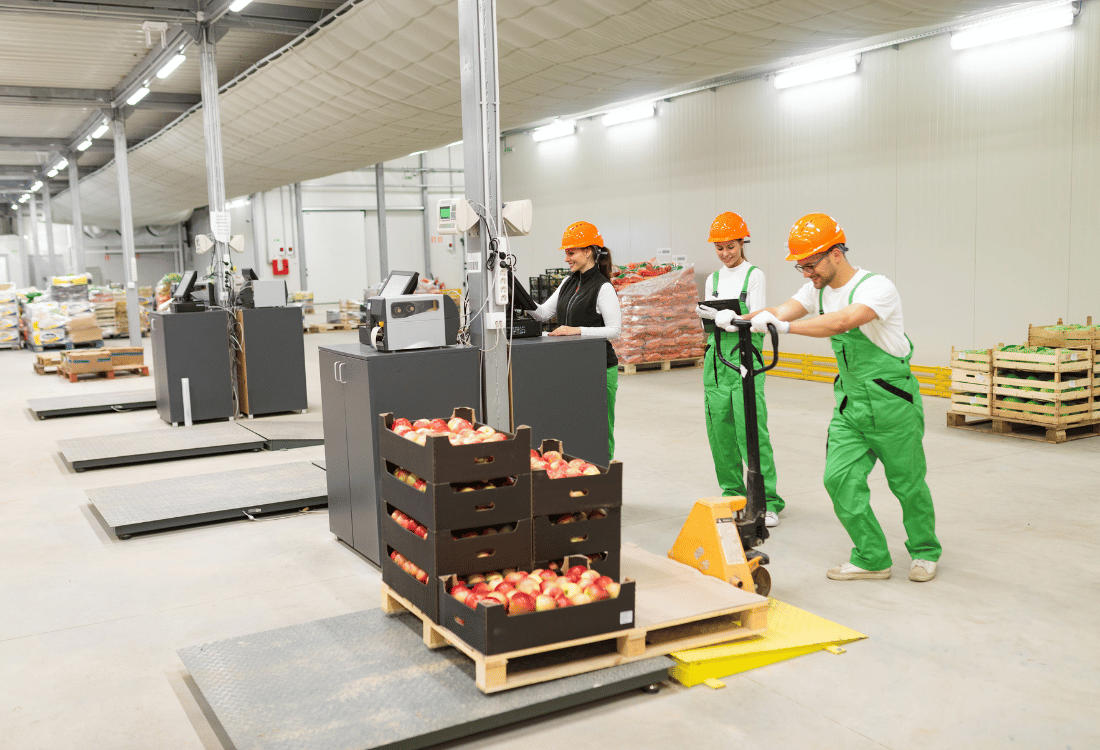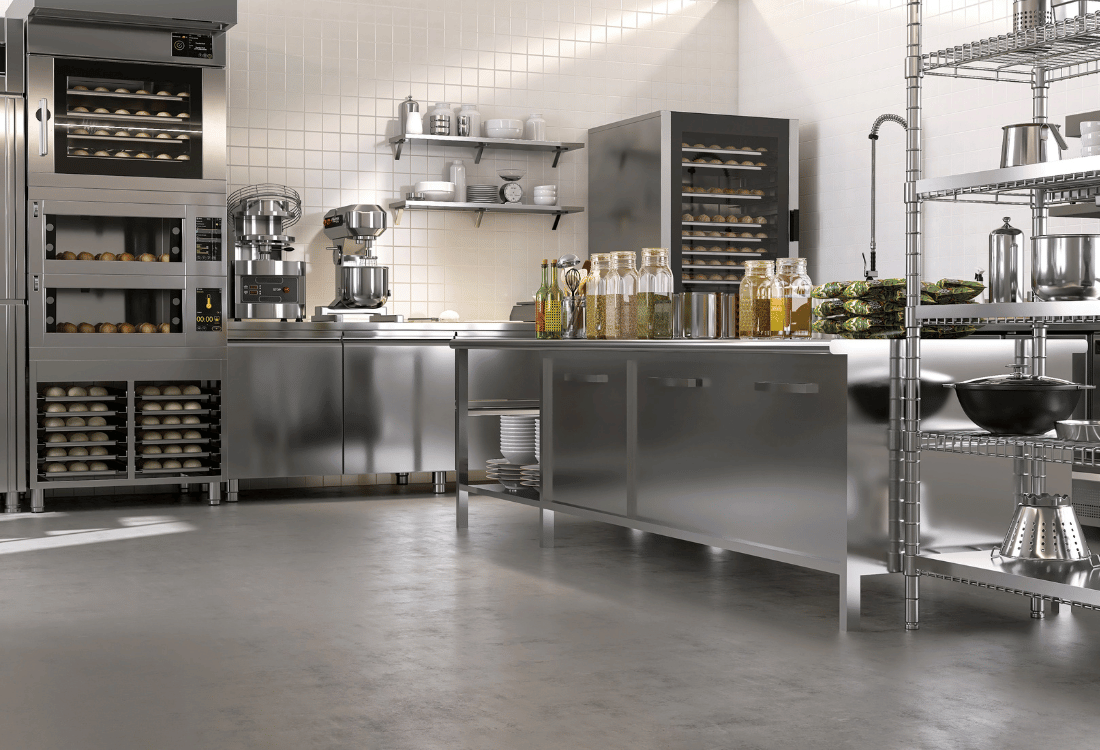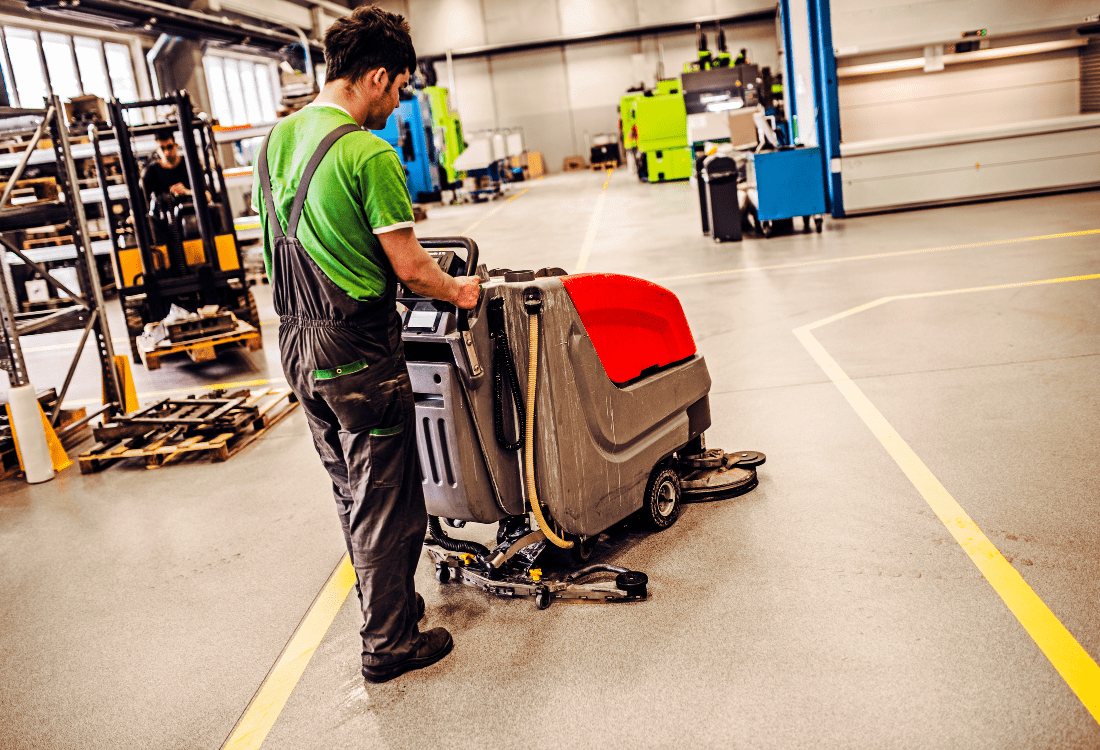What Type Of Flooring Is Ideal For The Food Manufacturing Industry
The food manufacturing industry rightly has a much more stringent set of health and hygiene regulations than most others. That’s because the products being produced, processed, stored and transported are destined for human consumption.
Which is why they need to be treated in the safest and most hygienic way possible. Conditions for food manufacturing are therefore highly regulated and subject to regular and thorough inspections under The Food Safety Act 1990. Any shortfall in terms of meeting standards can result in temporary or permanent closure, as well as substantial fines.
All of which means that every element of a food manufacturing operation needs to meet the extensive compliance regulations, starting with the floor surfaces. Food hygiene flooring is expected to be made using specific food safe materials. It should be designed to be easily cleaned and sterilised, safe for operatives and durable enough to withstand the rigours of temperature extremes and the other demands of food production. So, just what is considered suitable flooring for food manufacturing? Let’s take a closer look.
Antibacterial And Ease Of Cleaning
Food manufacturing flooring needs to be taint free so as not to contaminate any foods during processes. Ideally, flooring should have antibacterial agents built in to help to avoid germ build up on surfaces. Hygienic floors should be easy to clean and resistant to cracking or tearing which can create opportunities for bacterial build up. That’s why a hard wearing food safe resin floor is such a good option for these types of environments. Resin provides a solid, resilient and easy to clean surface that meets the requirements of UK legislation.
Durability Whatever The Conditions
Industrial food flooring offers high levels of durability as well as temperature resistance for steam cleaning and oven safety. The resistance to moisture and chemicals makes it ideal for the kinds of cleaning and sterilisation required in food safe environments. In addition, food production and storage often takes place in areas of temperature extremes, often around ovens and other heat sources or in refrigerated areas and freezers. This can cause some materials to break down or fail over time, so it’s essential food safe flooring is made using hard wearing resin or similar materials that can stand up to these challenges.
Slip-Resistant Flooring
In fast-paced food manufacturing environments with minimal downtime, preventing slips and falls is crucial for enhanced employee safety and security. Food production also often involves liquid or other slippery substances that can cause risks should spillages occur. Choosing slip-resistant flooring reduces the risk of accidents, ensuring employee safety and productivity and complying with the The Health and Safety at Work Act 1974.
To speak to us about flooring options for Food Safe Floors and Drainage Solutions, contact our team or give us a call on 0116 275 0315.
You May Also Like
These Related Stories

Do Your Food Manufacturing Warehouse Floors Meet The Standards?

The Importance Of Slip Resistant Resin Flooring For The Food Industry


